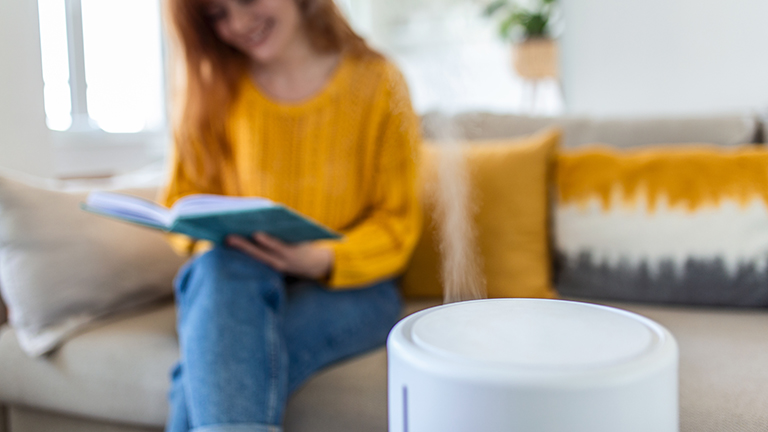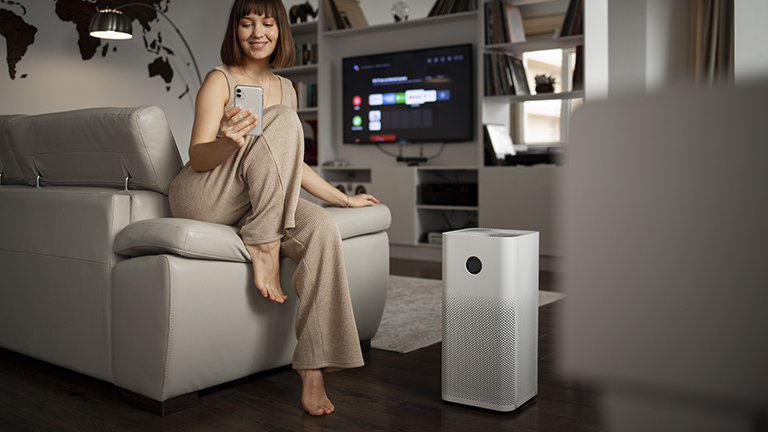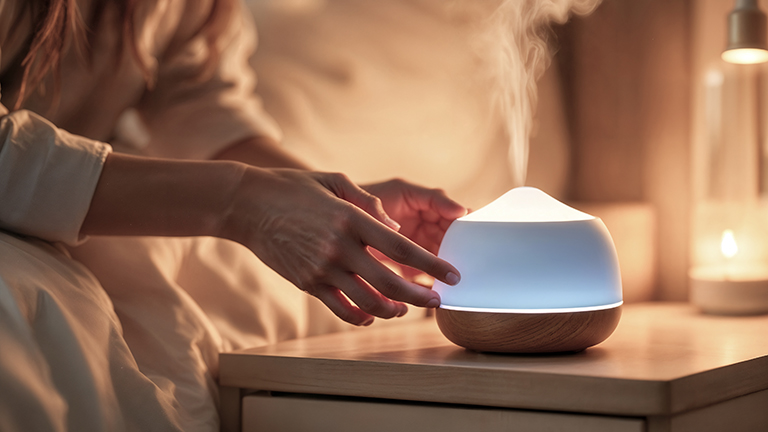Best Humidifier for Sinus Congestion: Sinus congestion is a common problem caused by colds, allergies, dry air, or sinus infections. Dry air irritates nasal passages, causing inflammation, dryness, and mucus build-up. A humidifier adds moisture to the air, which helps thin the mucus, reduce inflammation, and open nasal passages. Maintaining optimal humidity levels in your home can dramatically relieve congestion and improve breathing comfort.
Benefits for Allergy and Cold Sufferers
Humidifiers are particularly helpful for people with allergies, colds, or sinus infections. Moist air prevents the nasal tissues from drying out, reduces irritation, and minimises the chances of infection. For allergy sufferers, humidified air can also limit the airborne allergens that aggravate symptoms, such as dust and pollen.
Types of Humidifiers for Sinus Relief
Cool Mist Humidifiers
Cool mist humidifiers release a fine, cool water vapor into the air. They are ideal for warm climates and daytime use, as they help reduce the temperature while relieving nasal congestion. They are often preferred for children’s rooms and can cover large spaces effectively. Cool mist humidifiers are also energy-efficient and can run for long hours without overheating.
Warm Mist Humidifiers
Warm mist humidifiers boil water to create steam and release warm vapor into the air. The warmth can be soothing for people suffering from sinus congestion and can help kill certain bacteria in the water. These humidifiers are effective during cold winters and provide immediate relief for blocked sinuses. However, they consume more electricity and need careful placement to avoid accidental burns.
Ultrasonic Humidifiers
Ultrasonic humidifiers use high-frequency vibrations to produce a fine mist. They are quiet, energy-efficient, and suitable for bedrooms, offices, and small spaces. Ultrasonic humidifiers are ideal for continuous use, especially for people with sleep disturbances caused by sinus congestion. Some models also support essential oils for added sinus relief.
[INSERT_ELEMENTOR id=”5108″]
Top Features to Look for in a Sinus Relief Humidifier
Adjustable Humidity Levels
An effective humidifier for sinus congestion must allow you to adjust humidity levels. Maintaining 40% to 60% indoor humidity is optimal for sinus health. Too little moisture leaves nasal passages dry, while too much creates a breeding ground for mold and bacteria.
Filter vs. Filter-Free Models
Some humidifiers use filters to trap impurities, while others are filter-free. Filtered humidifiers can provide cleaner air, which is crucial for allergy sufferers. Filter-free models are easier to maintain and often more affordable. Choosing between the two depends on your personal needs and budget.
Noise Levels and Bedroom Use
Humidifiers should operate quietly, especially if you plan to use them in the bedroom at night. Ultrasonic and warm mist models are usually quieter than traditional fan-based humidifiers. A silent humidifier ensures restful sleep without disrupting your nighttime breathing.

Best Humidifiers for Sinus Congestion in 2025
Here are some of the top-rated humidifiers for sinus relief:
Premium Picks
- Levoit Ultrasonic Cool Mist Humidifier – Quiet, filter less, suitable for medium to large rooms.
- Vicks Warm Mist Humidifier – Produces soothing steam, great for colds and thick congestion.
- Honeywell HCM-350 Germ-Free Cool Mist – Evaporative design with antimicrobial features.
Budget-Friendly Options
- TaoTronics Cool Mist Humidifier – Compact, quiet, and portable.
- Everlasting Comfort Ultrasonic Humidifier – Large tank, essential oil tray for sinus relief.
Portable and Travel-Friendly Models
- Pure Enrichment MistAire Travel – Small, USB-powered, ideal for hotel rooms and offices.
- URPOWER Mini Humidifier – Compact and lightweight for travel use.
How to Use a Humidifier to Maximise Sinus Relief
Placement Tips for Better Humidification
Placement of your humidifier significantly affects its performance. Keep it at least a few feet away from walls and electronics to prevent moisture damage. Place it near your bed or work area for direct benefits. Avoid placing it on the floor if pets or children are present, as accidental spills may occur.
Cleaning and Maintenance Guidelines
Proper cleaning is critical to prevent bacteria and mold growth. Empty the water tank daily, rinse with mild soap, and disinfect weekly with a vinegar solution. For filter-based models, replace filters as recommended by the manufacturer. Neglecting cleaning can worsen sinus issues and trigger allergies.
Avoiding Over-Humidification
Too much humidity can create damp conditions, leading to mold growth and dust mites. Use a hygrometer to monitor indoor humidity levels and keep them within the ideal range of 40% to 60%. Modern humidifiers with built-in humidistats automatically adjust moisture output to maintain safe levels.
Common Mistakes When Using a Humidifier for Sinus Congestion
Using Dirty Water or Filters
Many users overlook the importance of clean water. Dirty water or neglected filters can release bacteria into the air, worsening sinus problems. Always use distilled or filtered water and follow cleaning guidelines.
Incorrect Humidity Levels
Running a humidifier at maximum output in a small room can cause excessive moisture. Conversely, insufficient humidity won’t relieve sinus congestion. Adjust settings according to room size, season, and personal comfort.
Additional Tips for Managing Sinus Congestion
Home Remedies and Lifestyle Adjustments
Humidifiers work best when combined with other sinus relief strategies. Drinking warm fluids, using saline nasal sprays, and practising steam inhalation complement humidifier use. Maintaining clean bedding, avoiding allergens, and staying hydrated are additional measures to prevent sinus issues.
Combining Humidifiers with Essential Oils
Some ultrasonic humidifiers support essential oils like eucalyptus, peppermint, or lavender. These oils provide additional relief by opening nasal passages and soothing irritated sinuses. Ensure your humidifier is compatible with oils to avoid damage.
FAQ: Best Humidifier for Sinus Congestion
How often should I clean my humidifier?
Cleaning daily and disinfecting weekly is recommended to prevent bacteria and mold growth.
Can a humidifier prevent sinus infections?
While it doesn’t prevent infections entirely, maintaining optimal humidity reduces the risk of irritation and supports sinus health.
Which type is best for allergy sufferers?
Filtered cool mist or ultrasonic humidifiers are ideal for allergy sufferers as they minimize airborne irritants.
Conclusion: Best Humidifier for Sinus Congestion
Selecting the best humidifier for sinus congestion involves understanding your room size, personal needs, and humidity preferences. Cool mist, warm mist, and ultrasonic humidifiers each offer unique benefits, and proper maintenance is essential to prevent health risks. By combining a quality humidifier with lifestyle adjustments, you can significantly reduce sinus congestion, improve sleep, and enhance overall respiratory health.


